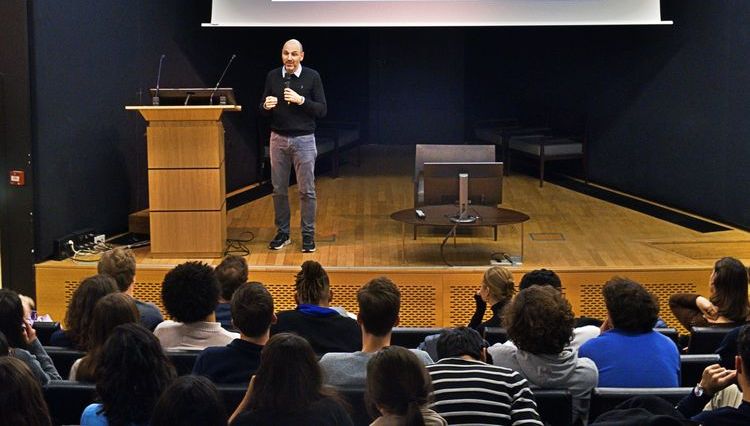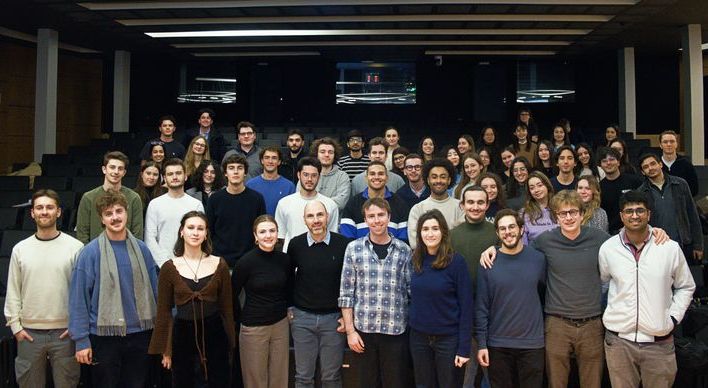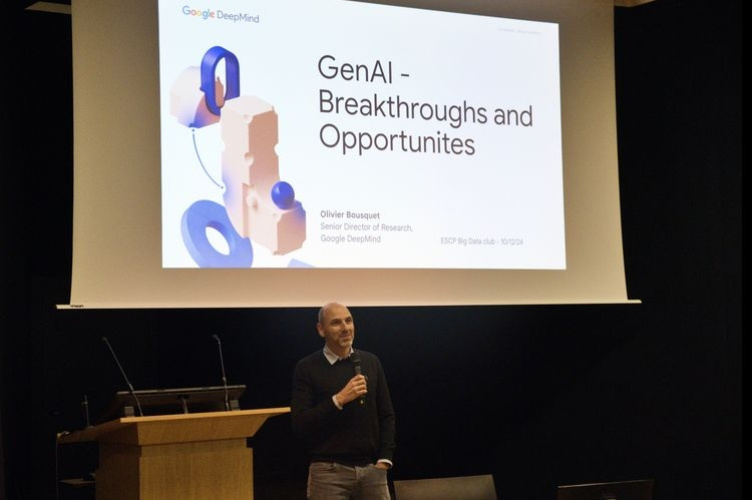ESCP Big Data Club Hosts an Evening with Olivier Bousquet, Research Director at Google DeepMind Europe
This article was written by members of the ESCP Big Data Club
On 10 December 2024, the ESCP Big Data Club hosted a thought-provoking discussion with Dr Olivier Bousquet, Research Director at Google DeepMind Europe, for its first event of the 2024/2025 academic year at the ESCP Montparnasse Campus. With a distinguished career in artificial intelligence (AI) and machine learning (ML), Olivier provided valuable insights into the evolution of AI, the latest developments in the field, and its future trajectory. About 80 students from multiple campuses showed up for the talk to gain a deeper understanding of the impact of Generative AI.
Key takeaways from the event
Charting the evolution of AI
Beginning with a historical overview of the progression of AI, Dr Bousquet discussed the recent rise of Generative AI (GenAI) and the tremendous capabilities these tools have to change our daily lives. Diving into more technical aspects, he explained how neural networks form the foundation of GenAI models and how continual refinement has enhanced their performance. Bousquet also discussed how these models support Large Language Models (LLMs) such as OpenAI’s ChatGPT and Google’s Gemini, emphasizing the importance of understanding these mechanisms to effectively use these advanced AI tools.
Sharing developments in AI innovation
One of the most exciting segments of the event was Bousquet’s insight into the cutting-edge AI developments he has been involved with at Google DeepMind. A video showcasing Project Astra, a real-time AI assistant, drew a flurry of gasps from attendees and questions about the technology. The tool allows users to perform real-time calculations, ask personalised questions and receive contextual assistance.
Students raised pertinent questions about data privacy, but Bousquet explained that the tool does not actually store video frames but instead retains summaries of the visual content. A demonstration of the AI assistant locating misplaced glasses in Google’s London office left attendees visibly impressed.
Another major development Bousquet touched on was AlphaFold3, a groundbreaking tool capable of predicting the shapes of proteins, RNA, and DNA. This advancement holds immense potential for drug and vaccine development and represents a leap forward in medical research.
Discussing the social and environmental impact of AI
As AI models become more common, concerns about their environmental impact, particularly energy consumption for large data centres, have grown. Bousquet noted that AI could help accelerate breakthroughs in fields like nuclear fusion, potentially offsetting its energy demands in the long term. He also highlighted quantum computing’s potential to reduce AI’s energy usage, though widespread adoption remains distant. In the meantime, he stressed the need for responsible AI development and energy-conscious usage.
Dr. Bousquet also addressed AI’s societal implications, warning of risks such as misinformation and biased outputs. He emphasised the importance of public awareness and adopting a critical mindset when engaging with AI-generated content, ensuring informed and responsible usage to maximise its positive societal impact.
Empowering Tomorrow’s AI Leaders
Bousquet’s presentation offered students a balanced perspective on AI, celebrating its transformative potential while remaining mindful of potential challenges. As AI continues to evolve at an unprecedented pace, events like this serve as important platforms for fostering dialogue between industry leaders and the next generation of data scientists, policymakers and business leaders.
The Big Data Club gives a special thanks to Olivier Bousquet and to all who attended the event.


Campus
